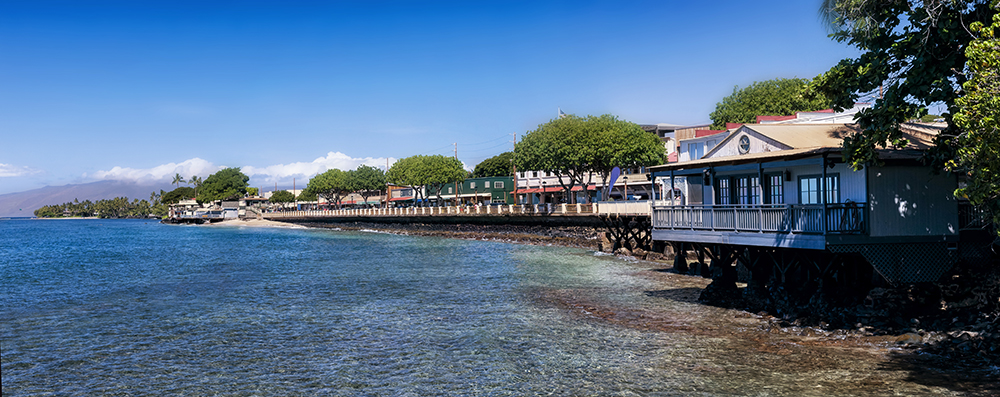 The waterfront in the historic town of Lahaina on Maui before wildfires decimated the area in early August 2023.
The waterfront in the historic town of Lahaina on Maui before wildfires decimated the area in early August 2023.
The islands of Maui and Hawaii have endured devastating wildfires this week that have taken lives, destroyed property, displaced residents, and demolished irreplaceable cultural and historical assets. As the scale of destruction continues to become evident, the Natural Hazards Center team joins with others in offering condolences and support.
As of this writing, ash and smoke are still blanketing the west coast of the islands. Mortality investigations and damage assessments are underway, and concerns are already being raised about prospects for recovery. We know, too, that members of the hazards and disasters community are also questioning what we need to learn from this latest disaster and how we use those lessons to help other people living at risk.
With this in mind, we’d like to remind you of some key resources available to encourage the ethical and comprehensive study of these events:
Wildfire Ready Quick Response Research Awards. This award program funds the collection of perishable data before, during, and after wildfires, as well as the publication of wildfire datasets and instruments. The program, which is supported by the National Oceanic and Atmospheric Administration and National Science Foundation, will offer awards ranging from $1,000 to $7,500. Proposals are evaluated contemporaneously as they are submitted and will be accepted through June 1, 2024.
CONVERGE Virtual Forums. These virtual gatherings bring together researchers and research partners to more effectively communicate, coordinate, and collaborate after major disaster events. We hope you will join us on Tuesday, August 22, from 2:00 to 3:00 p.m. MDT, for a forum focused on identifying research needs and priorities, discussing ethical considerations, and learning about the early effects of this disaster.
CONVERGE Resources. Respecting local context and priorities is always important, and especially when conducting quick response research in a location such as Hawaii, which has a long history of Western colonization and exploitation. The CONVERGE Training Modules and Extreme Events Research Check Sheets can help cultivate the unique skills and understanding required among new and experienced scholars alike in conducting ethical and culturally competent research. Topics include collecting and sharing perishable data, conducting emotionally challenging research, ethical considerations, positionality, and reciprocity in hazards and disaster studies.
SSEER Network. The Social Science Extreme Events Research Network—or SSEER—is a global network of social scientists who study hazards and disasters. Please visit the SSEER online map to identify locally affected researchers and to learn more about social scientists who study topics relevant to this disaster such as the human effects of wildfire, evacuation behavior, warnings, and health outcomes.
Although we are grieving for the shocking losses in Hawaii, we cannot forget our mission to advance disaster social science and interdisciplinary knowledge and we know that many of you feel the same. We will be sharing more information on upcoming Natural Hazards Center and CONVERGE efforts related to the Hawaii fires soon. Please check back or sign up to receive updates by email.